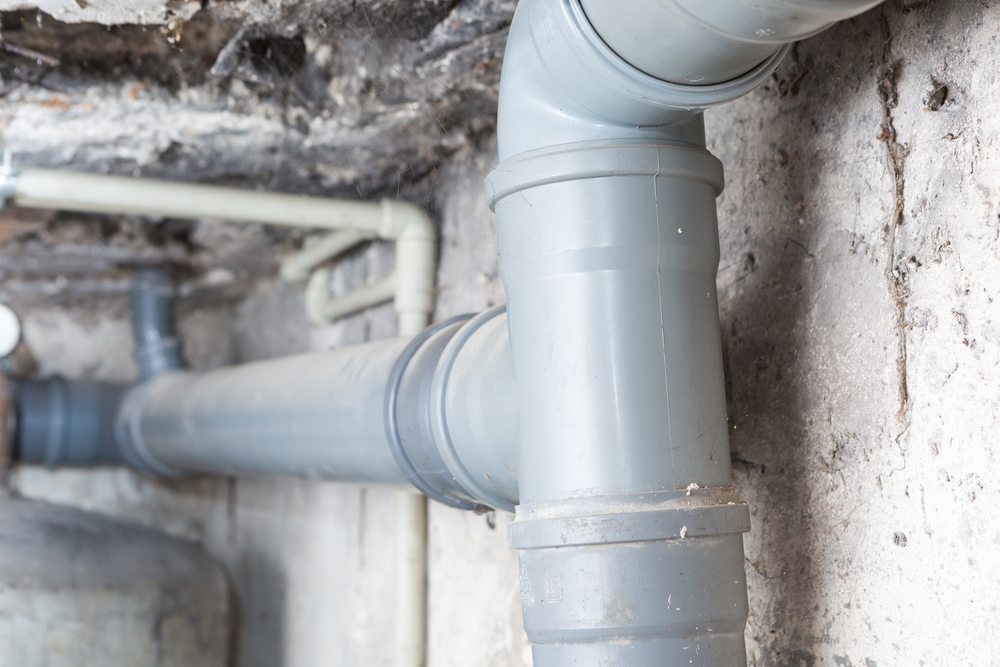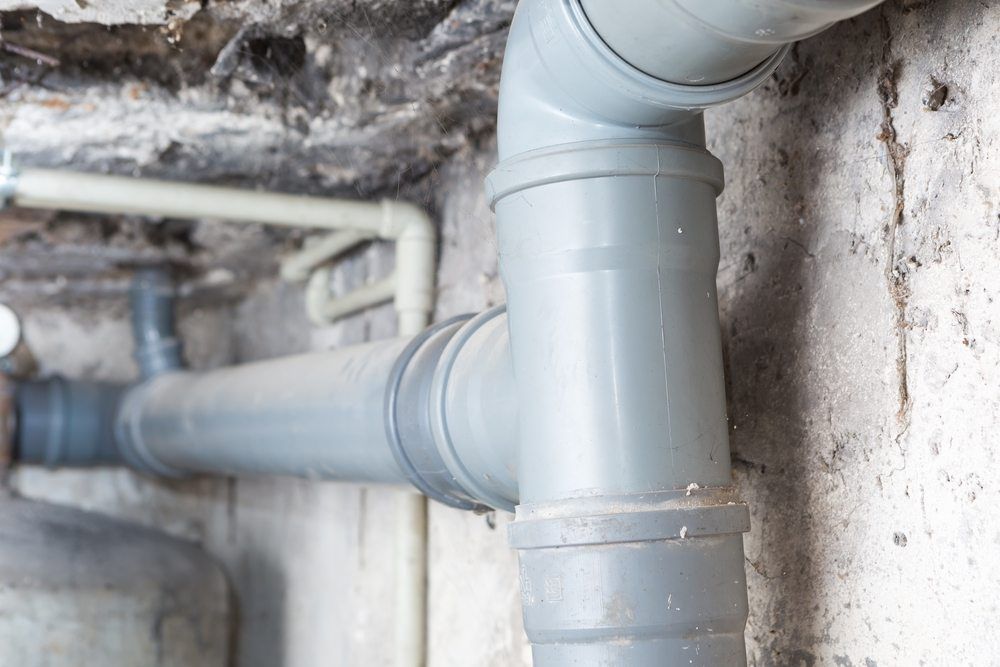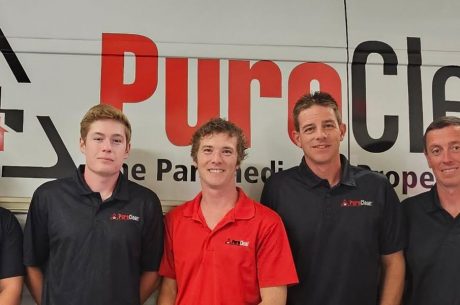If you’re a homeowner looking to prevent sewage backup in Bloomington, you’re not alone. Sewage backup is one of the most stressful and costly emergencies your home can face. Whether it’s due to heavy rain, aging pipes, or improper disposal habits, once raw sewage enters your basement or bathroom, you’re dealing with a toxic, hazardous mess.
But here’s the good news—sewage backups are often preventable with the right information and maintenance. And that’s what this guide is all about.
Let’s walk through the common causes, prevention methods, and what to do if a backup ever happens in your Bloomington home.
Table of Contents
What Causes Sewage Backup?

If you’re looking to prevent sewage backup in Bloomington, it helps to first understand what causes it. Sewage backup isn’t just a random event—it’s usually the result of underlying issues that build up over time. From environmental factors to plumbing problems, several culprits can trigger this messy and hazardous situation.
Let’s take a closer look at some of the most common causes of sewage backup, especially in older homes and neighborhoods around Bloomington.
1. Clogged Sewer Lines
One of the top reasons sewage backs up into homes is due to clogs in the main sewer line. These blockages often come from everyday items that should never go down your drains—things like grease, hair, food scraps, baby wipes, feminine hygiene products, and paper towels. Even so-called “flushable” wipes can cause serious clogs. When waste has nowhere to go, it eventually reverses course and floods into your home. If you’re trying to prevent sewage backup in Bloomington, keeping your drains clear of non-biodegradable materials is a must.
2. Tree Root Intrusion
Tree roots might look harmless above ground, but below the surface, they’re powerful enough to crack and invade old sewer lines—especially clay or cast-iron pipes commonly found in older Bloomington homes. Roots grow toward moisture and nutrients, and they’ll push through even the smallest pipe crack to get inside. Over time, they can block the pipe completely, causing raw sewage to back up into your home. If you’re aiming to prevent sewage backup in Bloomington, have a professional check for root intrusion every few years.
3. Aging or Collapsed Pipes
Another major cause of sewage backup is aging infrastructure. Homes built decades ago may still rely on outdated sewer systems that are no longer structurally sound. Pipes made from materials like cast iron or clay are prone to corrosion, cracking, or even collapsing. Once this happens, sewage can’t flow properly, leading to backups that can severely damage your property.
4. Overloaded Municipal Sewer Systems
After heavy rain or flooding, the city’s sewer system can become overwhelmed. Bloomington’s combined sewer system—where stormwater and sewage share the same pipes—can only handle so much at once. When demand exceeds capacity, wastewater can backflow into homes through basement drains and toilets. This type of backup is especially difficult to predict, which is why homeowners are urged to prevent sewage backup in Bloomington by installing backwater valves and ensuring proper drainage.
5. Illegal or Improper Plumbing Connections
Sometimes, the problem comes down to how your plumbing was installed. Connecting sump pumps, French drains, or other flood control systems directly to your sewer line is not only illegal in many places—it can also overwhelm the line and trigger a backup. It’s critical to have your system inspected to make sure everything is up to code.
Knowing what causes these issues is half the battle. If you want to prevent sewage backup in Bloomington, proactive maintenance, updated plumbing, and the right safeguards are essential. Identifying the risk factors early gives you the power to stop the mess before it ever starts.
How to Prevent Sewage Backup in Bloomington: 7 Effective Tips
1. Don’t Flush the Wrong Items
The easiest way to prevent sewage backup in Bloomington is by watching what you flush. Never flush wipes (even if they’re labeled “flushable”), feminine hygiene products, paper towels, or anything other than human waste and toilet paper.
2. Properly Dispose of Grease and Oil
Grease may be liquid when hot, but it hardens inside your pipes as it cools. Over time, it forms stubborn clogs that can block wastewater from flowing freely. Always dispose of grease in a heat-resistant container and toss it in the trash.
3. Install a Backwater Valve
A backwater valve is one of the most reliable solutions to prevent sewage backup in Bloomington homes. It allows wastewater to exit your house but blocks it from re-entering if the sewer gets backed up.
4. Replace Old Sewer Lines
If your home was built before the 1980s, it may still have clay or cast iron sewer lines. These materials are prone to collapse and tree root invasion. Replacing them with modern PVC piping can reduce the risk of blockages for decades to come.
5. Cut and Monitor Tree Roots
Have a plumber or tree service professional check for root intrusion every couple of years. If roots are found, they can be cut back or chemically treated to prevent regrowth.
6. Maintain Your Sump Pump
If your Bloomington basement has a sump pump, it’s crucial to keep it in working order. Check it every few months, especially before heavy rain. Make sure the pump is free of debris and sitting on a solid, clean surface like a brick or concrete pad.
7. Schedule Regular Drain Cleaning
A proactive way to prevent sewage backup in Bloomington is by having your drains professionally cleaned once a year. This clears out buildup before it causes a serious problem.
What to Do if You Experience a Sewage Backup
Even with regular maintenance and all the right precautions, sometimes things just go wrong. A sudden storm, a surprise pipe collapse, or a hidden tree root can still lead to an emergency. That’s why it’s important to not only take steps to prevent sewage backup in Bloomington, but also to know how to respond quickly if one occurs.
If you’re dealing with a sewage backup, your first priority is safety. Sewage water—also known as “black water”—contains bacteria, viruses, and harmful contaminants that can pose serious health risks. Here’s what you should do immediately if your home in Bloomington experiences a sewage backup:
1. Stay Out of the Contaminated Area
When a sewage backup happens, the most important thing you can do is protect yourself and your family from harmful exposure. Sewage water is full of dangerous bacteria and viruses that can cause serious health problems with even limited contact. If you’re trying to prevent sewage backup in Bloomington, the last thing you want is to make matters worse by walking through contaminated areas.
Avoid the temptation to check out the damage up close or try to clean it up yourself. Instead, focus on keeping people and pets far away from the affected space. One of the key reasons to prevent sewage backup in Bloomington is to avoid these unsafe situations altogether—but if it does happen, keeping your distance is critical.
2. Turn Off the Electricity (If You Can Safely Do So)
When a sewage backup hits your home, water and electricity can become a dangerous mix. If the flooded area includes electrical outlets, appliances, or any exposed wiring, the first step is to cut the power—but only if you can do so safely. Your safety comes first.
If your breaker panel is not in a flooded area, go ahead and shut off the power to the affected parts of your home. If it’s located in the basement or anywhere near the sewage water, do not risk it. Wait for a professional who’s equipped to handle electrical hazards.
One of the best ways to prevent sewage backup in Bloomington from becoming an electrical emergency is through regular maintenance and early upgrades. A sump pump with a backup power supply, for example, can make a huge difference during a storm or power outage.
Remember, taking steps to prevent sewage backup in Bloomington doesn’t just protect your plumbing—it protects your entire home, including your electrical systems. When things go wrong, knowing when and how to shut off the power can keep your family safe and help minimize further damage.
3. Shut Off Your Main Water Supply
Stopping the flow of water in your home can reduce further damage. If you haven’t already identified the location of your main water shut-off valve, now’s the time to learn. This is another great reason why homeowners who want to prevent sewage backup in Bloomington should take time to prepare before disaster strikes.
4. Call a Professional Cleanup and Restoration Service Immediately
Handling raw sewage is not a DIY job. Even if the backup looks small, the water may have soaked into drywall, flooring, and structural materials. Left untreated, this can lead to mold growth and further property damage. Professionals like PuroClean of Bloomington have the tools, experience, and protective equipment to clean and restore your home safely.
5. Document the Damage and Call Your Insurance Provider
Take photos and videos of the damage if it’s safe to do so. Then contact your insurance company. Keep in mind that standard homeowners’ policies don’t always cover sewage backups unless you’ve added special coverage. If you’re serious about wanting to prevent sewage backup in Bloomington, adding this coverage can offer peace of mind.
6. Ventilate the Area
Airflow can help reduce the immediate odors and slow the growth of mold, but it’s important to proceed with caution. If you can safely open windows or use fans without spreading contaminants, go ahead—but only as a short-term measure. Good airflow is useful, but it’s not a permanent fix.
Ventilation alone won’t solve the problem. That’s why homeowners who want to prevent sewage backup in Bloomington often install backflow prevention valves or upgrade their drainage systems before a problem occurs. When backups do happen, letting in fresh air can help with comfort and reduce lingering smells, but it’s no substitute for a professional cleanup. Remember, one of the smartest ways to prevent sewage backup in Bloomington is to plan ahead so you’re not stuck improvising during a crisis.
Experiencing a sewage backup is stressful, but taking fast, safe action makes all the difference. While we always recommend you prevent sewage backup in Bloomington with proactive maintenance and system upgrades, knowing how to respond in an emergency is just as important. When in doubt, don’t hesitate—call the trusted pros at PuroClean of Bloomington for help.
Frequently Asked Questions
❓How can I tell if my sewer line is clogged?
Signs include slow drains, bubbling toilets, gurgling pipes, or water backing up into tubs and sinks. If all drains in your home are affected, the main line could be the problem.
❓Is sewage backup covered by insurance?
Not usually under a standard homeowners policy. However, many insurance companies offer riders or endorsements that specifically cover sewer or drain backup. It’s worth discussing with your agent.
❓Can tree roots really break pipes?
Yes. Tree roots are surprisingly strong and can grow through tiny cracks in old pipes. Over time, they widen those cracks and cause major damage or complete blockages.
❓What should I do first if I see sewage in my basement?
Leave the area, shut off power if safe, and call a professional restoration team. Do not attempt to clean up black water on your own.
❓Why does this happen more in older Bloomington homes?
Older homes often have outdated plumbing systems that weren’t built to handle today’s wastewater loads or withstand root intrusion and aging materials.
Trust PuroClean of Bloomington to Protect Your Home
When you’re working to prevent sewage backup in Bloomington, you’re not just protecting your home—you’re safeguarding your health, your family’s comfort, and your peace of mind.
And when things go wrong, you don’t have to handle it alone.
At PuroClean of Bloomington, we specialize in rapid sewage cleanup, water damage repair, and mold remediation. Our IICRC-certified experts use industrial-grade equipment to ensure your home is restored safely and thoroughly.
Need more than just water damage help? We also provide expert fire damage restoration services. Whether it’s smoke damage, soot, or a post-fire water mess, our team will guide you through recovery—step by step.
Don’t wait for a disaster to strike. Let PuroClean of Bloomington help you stay a step ahead.




 PuroClean Of Bloomington
PuroClean Of Bloomington